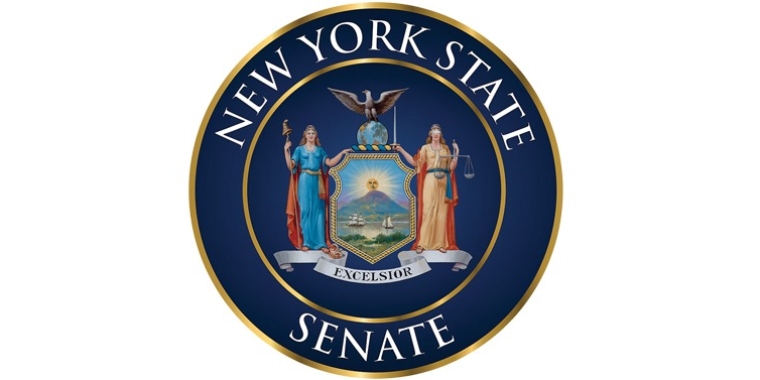
Hoylman, Paulin 'Surrogate Bill of Rights' to be Voted on in Senate
June 11, 2019
ALBANY, NY - Senator Brad Hoylman (D/WF-Manhattan), Chair of the Senate Judiciary Committee, and Assembly Member Amy Paulin (D-Westchester), Chair of the Assembly Corporations Committee, have amended their legislation (S.2071-B/A.1071-C), that would legalize and regulate compensated gestational surrogacy agreements in New York State. The changes are in response to feedback Senator Hoylman and Assembly Member Paulin received from colleagues and interested parties, including at a legislative hearing on the issue held by the Senate Judiciary Committee on May 29, 2019.
The changes to the legislation accomplish the following:
• Creates a “Surrogates’ Bill of Rights” as a statutory backstop for the protections built into surrogacy agreement requirements, including health and welfare decisions, independent legal counsel, health insurance and medical costs, counseling, life insurance, and termination of surrogacy agreements;
• Extends the period of time during which intended parents must cover the co-payments, deductibles and any other out-of-pocket medical costs to up to six months post-birth in the event of any medical complication arising from the pregnancy;
• Directs the NYS Department of Health to promulgate regulations on the practice of gestational surrogacy and egg donation, including guidelines and procedures for obtaining fully informed consent from persons acting as surrogates and egg donors, as well as establishing a voluntary central tracking registry to provide a mechanism to help track long-term health outcomes;
• Clarifies that parties to a judgment of parentage (including any resulting children) have access to court records, including the identity of the person acting as surrogate and/or any known gamete donors;
• Clarifies that the attorney-client privilege lies exclusively between the person acting as surrogate and their chosen independent legal counsel, even when the intended parents are responsible for payment of the counsel;
• Gives the NYS Department of Financial Services in consultation with the Department of Health broad licensing, regulatory and oversight power over the operation of surrogacy programs;
• Requires the person acting as surrogate, as well as at least one intended parent, be a citizen or permanent lawful resident to prevent ‘surrogacy tourism.’
Senator Hoylman said: “I’m the proud parent of two daughters born through gestational surrogacy. Unfortunately, under the current law, my husband and I had to travel 3,000 miles to California to build our family because New York makes surrogate agreements illegal. It’s time we fix that for LGBTQ families and any intended parent grappling with infertility. The bill Assemblymember Paulin and I are sponsoring would ensure that women acting as surrogates, donors and intended parents have the strongest legal protections of any state in the country. I look forward to bringing it to the floor for a full vote in the Senate this week.”
Assemblymember Paulin said: "It's not enough for New York to catch up to where other states have been in terms of allowing same-sex and infertile couples to start their families through gestational surrogacy agreements. We should be putting forward the strongest possible law to protect parents, children, and surrogates to reflect the current state of the science and the thorny legal questions that have frustrated New Yorkers dealing with out-of-state surrogacy arrangements. With feedback from our partners and carefully-constructed amendments, Senator Hoylman and I intend for the Child-Parent Security Act to become the gold standard."
New York made surrogacy illegal in 1992 in response to the notorious “Baby M” case in New Jersey. Current law has largely failed to keep pace with medical advances in assisted reproduction, causing uncertainty about who the legal parents of a child are upon birth. Because of these challenges, couples facing infertility as well as same-sex couples are often forced to go out of state to have a child through gestational surrogacy. Hoylman and Paulin’s bill would remedy these deficiencies in the law.
Their legislation would permit legally enforceable compensated gestational surrogacy agreements, allow individuals to obtain a “Judgment of Parentage” from a court prior to the birth of the child to establish legal parentage, and establish firm legal protections for both parents and women acting as surrogates. The bill would also ensure that women acting as surrogates have the ability to make all health and welfare decisions regarding themselves and their pregnancy. Women acting as surrogates would be also entitled to independent legal counsel and health insurance coverage under the terms of the bill.
###
Share this Article or Press Release
Newsroom
Go to NewsroomAttorney Grievance Complaint: Emil Bove
February 22, 2025
New York State Department of Health Guidelines on Gender Affirming Care
February 19, 2025
